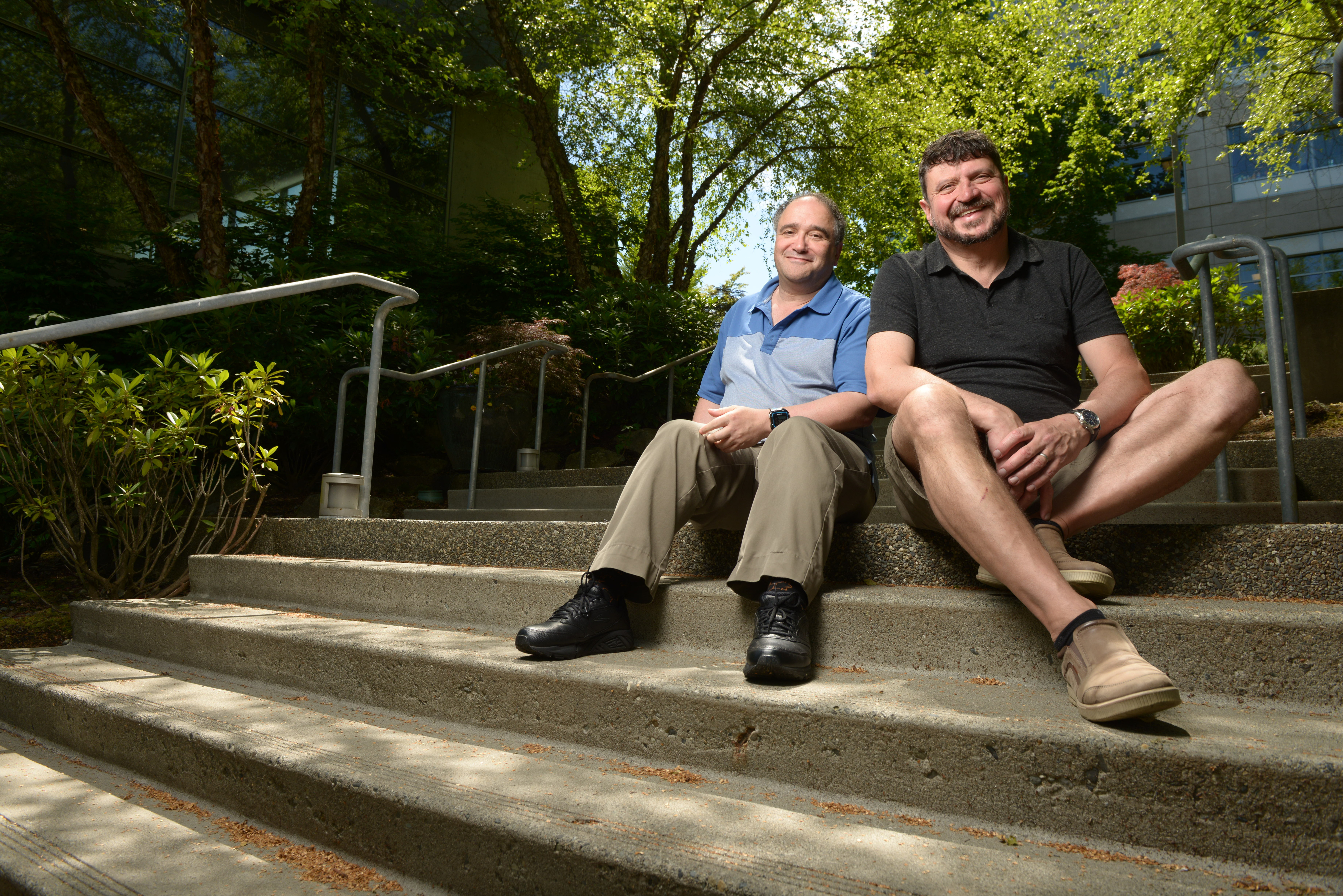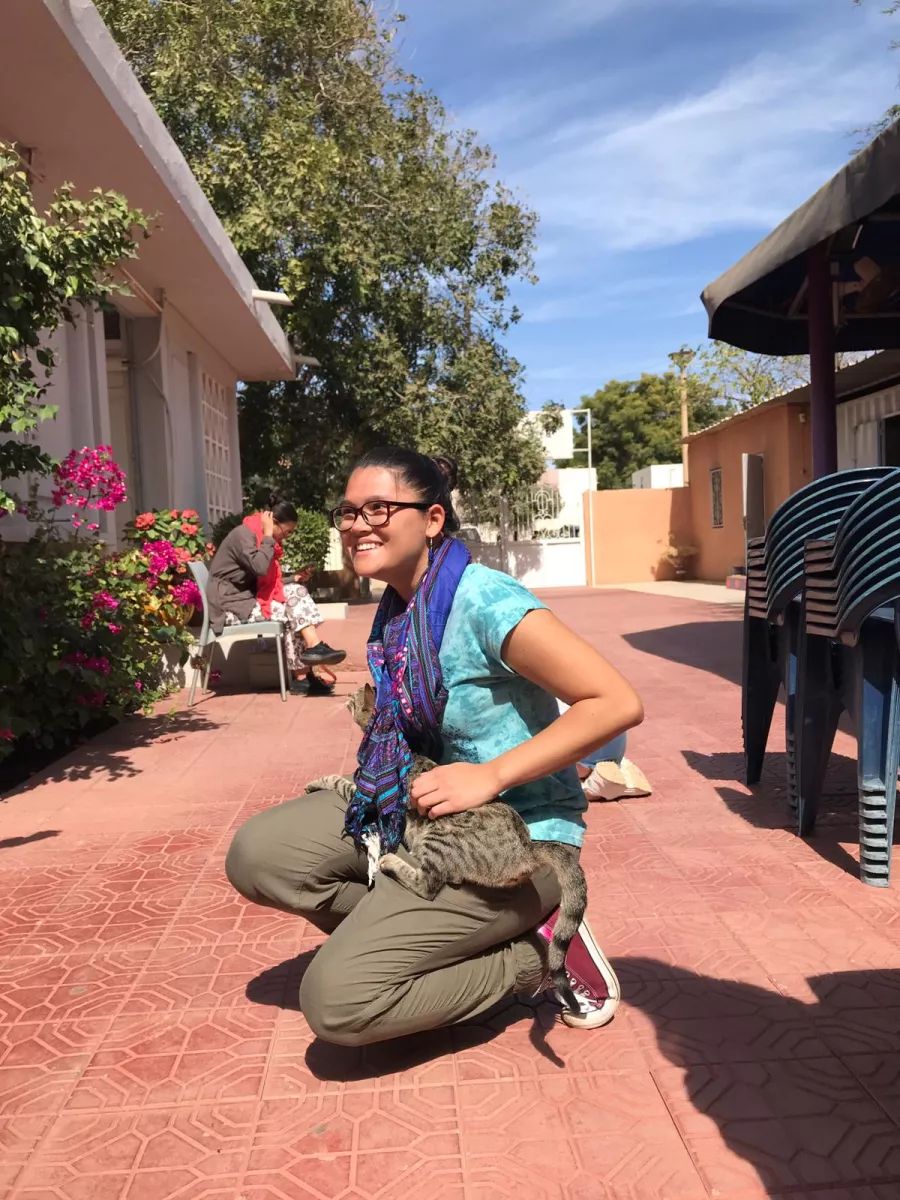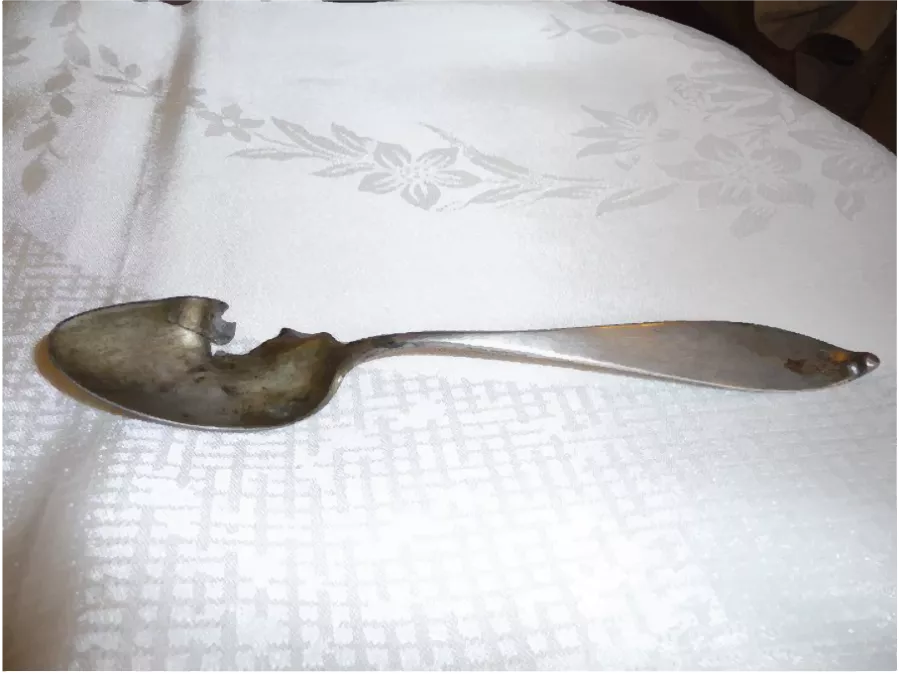Victor Poznanski, a Microsoft manager with a doctorate in computer science from the University of Cambridge, had carried a secret his entire life—until the day he took a lunch break stroll with his boss around the Redmond campus and they started talking about WWII.
His boss, Bernhard Kohlmeier, told Poznanski that his parents had been children in Nazi Germany and educated in Nazi-controlled schools, an indoctrination that affected their whole lives. Kohlmeier grew up questioning the perspective that had been imposed upon his parents, working against their resulting prejudices and doubts about the Holocaust, and rejecting their casual remarks about how the time under Hitler had positive sides as well. He denounced the way the Nazis used schools and education as propaganda tools to indoctrinate young people.
As he listened, Poznanski decided to tell his own story, a story he had told only one other person. Poznanski’s own father, Arthur, had escaped the Nazis as a teenager after years of imprisonment. His secret out, he felt tremendous relief. For all the differences in their respective histories, the two men found they had a lot in common.
Saved by a spoon
Born in 1928 in a small town in Poland, Arthur Poznanski’s childhood began peacefully. He was the oldest of three brothers. When he was 12, the Nazis forced his family to move into a ghetto and made Arthur leave school and work in a glass factory to support the German war effort. At 14, he came home from the factory to discover that his parents and younger brother were gone—transported, he later learned, to the Treblinka extermination camp. Only his 12-year-old brother, Jerzy, was left; the boys never saw their parents again. Arthur, now the man of the house, took Jerzy with him to work at the factory, where Jerzy became a master glassblower. Arthur was small and struggled with the physical nature of glass work, so he survived by assisting the Nazis loot vacant apartments and scrounging what he could to keep himself and his brother alive.
In 1944, when Arthur was about 16, the Nazis sent him to Buchenwald, a work camp in Germany with a typical life expectancy of three months, and he lost track of Jerzy. In 1945,
as the war was coming to an end in Europe, Arthur knew the cattle train he was on was a death transport to Theresienstadt in Czechoslovakia. Each of the prisoners had been given a spoon, and Arthur and his friends used them to pry open the train window to escape. Both Arthur and a friend were shot the second they leaped from the train, but the spoon in his pants pocket saved Arthur’s life. The bullet drove it into his leg.
Arthur crawled to a Czech village and found a farmhouse. The Nazis hunted him, poking pitchforks into the hay where he hid, but he managed to escape. As soon as he recovered from his gunshot wound, he tracked down Jerzy in a temporary camp at the end of the war. The brothers reunited and traveled to Eng-land as two of “The Boys,” a group of 732 orphaned child survivors of Nazi concentration camps who were flown to England after the war.
Silence couldn't be justified
Kohlmeier stopped cold. He recognized many pieces of Poznanski’s story: the generational silencing of the war, the shame that passes to the children and grandchildren, the horrible indoctrination of Kohlmeier’s own parents. For Poznanski, it had been a risky thing to open up. “I found it difficult to let him know I was Jewish,” Poznanski says. “It can be dangerous to let people know that, and I had to find the right time.”
Kohlmeier encouraged Poznanski to speak publicly about not only about his father’s death-defying, courageous escape but also subsequent generations, and how to end the kinds of oppression that leads to fascism. Soon, Poznanski was standing in front of a crowd, sharing his father’s story for the first time at a public forum on the Holocaust.
“I was worried people would be angry, or wouldn’t take it well,” Poznanski says. But with the renewal of antisemitic attacks in the U.S. and elsewhere in recent years, he decided the time was right. “In the past two years there’s been an awareness of growing racism,” he says, “and I decided that my silence in this period couldn’t be justified anymore.”
The silence. Both men experienced a silencing shame and grief that threaded its way through their own lived experiences. They both agreed that the keys to stopping harm in our culture—ending that grief—are storytelling and education.
“If you have a generation who aren’t critical about their circumstances, they pass it on,” Kohlmeier says.
The Wolpow Institute
When Kohlmeier and his wife Lisa Ann Mikulencak, a mental health therapist in Seattle, sought a place to make a difference, they chose Western’s Wolpow Institute for the Study of the Holocaust, Genocide, and Crimes Against Humanity. Professor Sandra Alfers, the center’s director, had worked with Kohlmeier’s daughter Katharina, ’09, B.A., German, and other students to stage a play about the Holocaust, “Letters from Theresienstadt.” Kohlmeier was duly impressed with the performance, and with Alfers.
“I wasn’t sure what I was expecting,” Kohlmeier remembers. “Nothing like what it was. It was so well done, I was blown away.”
Later, Kohlmeier and Mikulencak learned about the Ray Wolpow Institute. One of the
few programs of its kind in the U.S., the Wolpow Institute not only addresses Holocaust education, but on the prevention of genocide around the globe. The institute hosts a symposium on Holocaust education, a lecture series, and other educational and cultural programs. The Wolpow Institute was also a force behind Western’s new minor in Holocaust and genocide studies; the first such minor at a public university in Washington.
Moved by the Wolpow Institute’s mission, the couple established the Kohlmeier-Mikulencak Scholarship in Honor of Arthur Poznanski. The scholarship is awarded to a student who not only makes a difference in their community, but does so in the face of great opposition.
The 2018-2019 recipient, Hoku Rivera, a third-year double-major in English and anthropology, helped organize and lead the March for Our Lives rally in Bellingham for gun safety. Fears of pro-gun activists showing up (as they had at other such rallies around the country) haunted Rivera, but she persevered, and after she marched she sang “We Shall Overcome” solo to the crowd of 3,000 parents, friends, high school students, fellow Western students, and community leaders.
The scholarship helped Rivera travel to Senegal on a WWU Global Study Program. She immersed herself in post-colonial authors such as Ken Bugul, Mariama Bâ and Ngugi wa Thiong’o, whose work aims to reclaim their cultural narratives. She met Senegalese people and listened to their own stories, learning how the forces of religion, migration and colonialism have affected their lives and shaped West Africa. And living in a place where most people didn’t speak English, “gave me the humbling opportunity to be removed from the center of my world,” she says.
“As an indigenous person to a sea‐locked place, it was also incredibly meaningful to see the ways the indigenous Senega-lese people interact with their environment, and specifically the ocean,” says Rivera, who grew up in Hawaii. “I noticed a lot of cultural artifacts held undeniable similarities to the tools and even musical implements that my people (and a good portion of other Pacific Island groups) use, which was beyond inspiring.”
Today, Arthur Poznanski’s spoon has become a cultural artifact, too, and is housed at Yad Vashem, The World Holocaust Remembrance Center in Jerusalem, which receives about 1 million visitors a year.
According to the Department of Justice, 8,437 hate crimes were committed in the U.S. in 2018. Western is not immune: The Jewish literature collection in Wilson Library was attacked last year with antisemitic symbols and words. Donors responded by replacing the books, adding many additional volumes to the collection. Earlier this year, a student was expelled from Western for spray-painting racist words on a campus sculpture. Around the world, genocide has been occurring in the Congo and Myanmar. These incidents, small and large, underscore the urgency of the work the Ray Wolpow Institute is doing, and the need for the support of people like Bernhard Kohlmeier and Lisa Ann Mikulencak, and the voices of people like Victor Poznanski, because in the words of author Margaret Atwood, “Powerlessness and silence go together.”
Frances Badgett is a novelist, poet, fiction editor and the assistant director of marketing and communications for Advancement at Western.
Photo of Poznanski and Kohlmeier by Daniel Berman, bermanphotos.com


